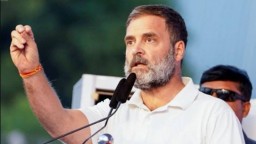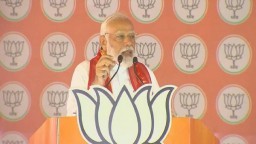Latest News
BRICS TURNS INTO BRICS PLUS

The BRICS group of major emerging economies - Brazil, Russia, India, China and South Africa - held its 15th heads of state and government summit in Johannesburg from 22 to 24 Aug 2023. It was attended by South African President Cyril Ramaphosa, Chinese President Xi Jinping, Brazil’s President Luiz Inacio Lula da Silva and Indian Prime Minister Narendra Modi in person and Russian President Vladimir Putin who was represented by his Foreign Minister Sergei Lavrov attended the Summit virtually. BRICS as a platform represents 42% of the world population, 30% of the world’s territory, 23% of global GDP, and around 18% of world trade. The BRIC that came into being in 2001 and came to be known as the BRICS by addition of South Africa in 2010 and will become the BRICS Plus from 01 Jan 2024. The BRICS started primarily as an economic pillar, has now diversified considerably to include security, health, science and technology, culture and civil society. Role of BRICS has also been very important in the context of being a pressure group on the question of reform of multilateralism and also on the question of reform of global governance institutions. BRICS sees itself as a bridge between developing countries and developed world and takes up issues which are very relevant to the developing countries also known as ‘Global South’.
This was the first inperson meeting since the COVID Pandemic in 2019 and Russian invasion of Ukraine in 2022, an event that has cast a long shadow not only over global stability, but food, fertilizer and fuel (energy) security. Given its composition, BRICS deliberations were perceived to carry a “counter-western” slant with the US and EU hoping to “isolate” Russia over the conflict with help of South Africa and some other invitee countries. The Summit also had Brazil represented by Luiz Inácio Lula da Silva Lula who is known socialist with anti-western politics than his predecessor President Bolsonaro.
A total of 44 countries had shown interest in joining BRICS and of these 23 countries applied for BRICS membership. China and Russia were in favour of maximum members joining the group but the Indian and Brazilian view to have strict parameters for new membership prevailed and finally only six members were admitted. These new members that will be effective from 01 Jan 2024 are:- Argentina, Ethiopia, Iran, Saudi Arabia, Egypt and the United Arab Emirates. This expansion is with a hope that the club of large and populous emerging economies will facilitate reshape the global order. The original BRIC members had two things in common: large economies, and high potential growth rates. The expanded BRICS-11 is a less coherent group as some are going through crises, others are thriving. This could signal an expansion of the agenda beyond economics”. African countries were looking to the BRICS grouping to help them with infrastructure and development. This step has been hailed by all the BRICS members and South Africa has clearly spelt it out that BRICS Plus is definitely not an anti-Western platform. The US and other western countries remain guarded about the possibility of BRICS becoming a new centre of power but have the US do not consider BRICS as a geopolitical group or a direct threat to western interests. This move may make the bloc stronger but there are fears that this may enhance Chinese influence in the group.
Other than expansion of BRICS the other important events and outcomes were, mutual agreement to deal with terrorism, multilateral reforms, digital economy, trade and food security. All members agreed on the reforms to be carried out at UN to reflect modern power realities. After extensive deliberations among the emerging market economies, leaders agreed on plans to accelerate growth and sustainable development for member states. The Johannesburg Declaration 2 calls for the peaceful resolution to global conflicts, especially calling for diplomatic talks to resolve the crisis in Niger, Libya, a ceasefire in Sudan and furtherance of middle east peace process. The declaration highlighted the mutually beneficial BRICS cooperation under the three pillars of political and security, economic and financial, and cultural and people-to-people cooperation and to enhancing strategic partnership for the benefit of people through the promotion of peace, a more representative, fairer international order, a reinvigorated and reformed multilateral system, sustainable development and inclusive growth. The Ukraine conflict did not appear as any controversial issue and nor were there any direct adverse references to US or western nations in the resolution. There was unanimous agreement on enhanced role of the BRICS Contingent Reserve Arrangement (CRA) and the New Development Bank (NDB) for enhanced mutual cooperation in financial sectors.
One of the focal issues was Presidency of G -20 group which is with India now and will be taken over by Brazil and South Africa in 2024 and 2025 respectively. All BRICS members reaffirmed the importance of G-20 to continue playing role of premier multilateral forum in the field of international economic and financial cooperation and play a balanced role between developing and developed economies to seek the global challenges. A successful hosting of G-20 Summit and adoption of a joint communique at Delhi in Sep 2023 will pave way for bigger role of Global South in world affairs.
THE VIEWS EXPRESSED BY THE AUTHOR ARE PERSONAL
Col Rajesh Bhukar The writer is a Post Graduate in International Studies, Alumni of Defence Services Staff College, Wellington and College of Combat, Mhow [email protected]





















